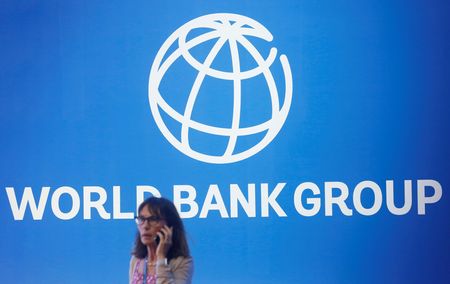LAGOS (Reuters) – Nigeria’s subsidies on petrol, electricity and foreign exchange are mostly benefiting wealthy households, the World Bank said in a report on Monday, adding that inefficient use of resources was constraining the country’s development goals.
Africa’s biggest economy has for years kept a costly but popular petrol subsidy that takes money away from education and health and a controlled official exchange rate that businesses and analysts say overvalue the naira and create arbitrage opportunities.
“Available data suggest that these subsidies, which accounted for more than the amount spent on education, health, and social protection in 2021, benefit primarily wealthy households,” the World Bank said in its Nigeria Public Finance Review report.
The report, which was conducted at the request of the finance ministry, said “not all these subsidies are accounted for in the budget, which makes them difficult to track and scrutinize.”
After two decades of uneven growth, Nigeria has the second- largest population of poor people in the world and is one of the least developed countries globally, the World Bank said.
The World Bank and International Monetary Fund have been calling on Nigeria to remove the petrol subsidy, which will cost more than $9 billion this year, and to free its exchange rate.
President Muhammadu Buhari said last month the petrol subsidy would go next year, when he steps down after Nigerians vote for a new leader in February.
(Reporting by MacDonald Dzirutwe; Editing by Andrea Ricci)

